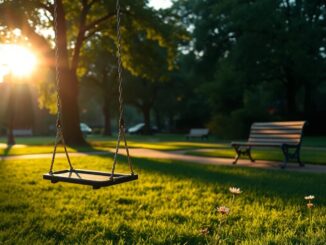The disappearance of Juliana Marins during a hike on Mount Rinjani underscores the complexities of rescue operations in challenging environments.

Topics covered
The search for Juliana Marins, a 26-year-old Brazilian tourist who disappeared while hiking on Mount Rinjani in Indonesia, has raised serious concerns about safety protocols in outdoor adventures. It begs an uncomfortable question: how prepared are we for the unexpected challenges that nature can throw our way? Unfortunately, many factors can lead to tragic outcomes, and learning from past experiences is crucial for both hikers and rescue teams alike.
Analyzing the Rescue Efforts
As the search for Juliana continues, the numbers paint a stark picture. Initial reports suggested that rescue teams had spotted signs of life, but their efforts have been thwarted by harsh weather conditions and challenging terrain.
Over three days have now passed since she was last seen, and the lack of food, water, and warm clothing only heightens the urgency of the situation.
The Brazilian foreign ministry is coordinating closely with Indonesian authorities, underscoring the international dimensions of this search.
The deployment of helicopters and drone surveillance highlights the scale of the operation, but it also reveals the limitations faced by rescue teams. With fog and rapidly shifting weather conditions forcing teams to retreat, it’s a reminder of just how unpredictable these missions can be.
Moreover, the decision to keep the park open for other hikers has stirred controversy. While some officials argue that this choice does not hinder the evacuation process, Juliana’s family has voiced their outrage, believing it only puts her life at greater risk. The delicate balance between tourism and safety is on full display here, emphasizing the urgent need for stricter regulations and protocols when it comes to outdoor activities.
Learning from Past Incidents
History provides several case studies that highlight the complexities of search and rescue operations. Take, for example, the 2017 incident in Yosemite National Park, where a solo hiker went missing, resulting in a lengthy search that ultimately ended in tragedy. Factors that often contribute to such incidents include inadequate preparation, a lack of familiarity with the terrain, and the unpredictable nature of the outdoors.
These experiences should serve as cautionary tales for both hikers and authorities. I’ve seen too many startups fail because they overlooked the data and failed to learn from past mistakes. The same principle applies here: ignoring warning signs or neglecting to take necessary precautions can lead to serious consequences.
We can’t ignore the role of social media in these scenarios either. As Juliana’s family raises awareness through platforms like Instagram, it brings vital attention to the issue but also adds pressure on rescue teams. The emotional weight of these cases can sometimes lead to rushed decisions, highlighting the need for a calm and measured approach to rescue operations.
For aspiring hikers, the takeaway is crystal clear: preparation is everything. This means thoroughly understanding the terrain, keeping an eye on the weather, and making sure you have ample supplies. The importance of having a reliable guide cannot be overstated—just look at Juliana’s situation. When a guide abandons their group, the consequences can be dire.
Authorities, too, have a duty to enforce safety protocols rigorously. This includes providing clear communication about trail conditions and potential hazards. Had the park closed during adverse weather, this situation might have been avoided altogether. Additionally, implementing stricter regulations on guided tours could significantly enhance safety for all adventurers.
Ultimately, the tragedy of Juliana Marins serves as a sobering reminder of the risks associated with our outdoor pursuits. The interplay between tourism and safety must be managed with care, ensuring that the experiences we seek don’t come at the cost of our lives.




